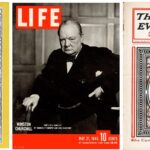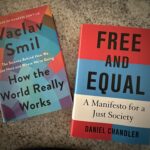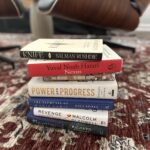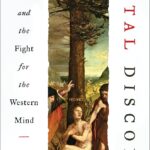 I have to brag about my city a little bit. A report released today named Minneapolis as the most literate city by any measure. Reporter Mary Beth Marklein, of USA TODAY, writes that the new study ranks “the USA’s “most literate” cities not by how many residents can read, but by various measures of how many do. And by those measures, Minneapolis is the most literate, El Paso, the least.”
I have to brag about my city a little bit. A report released today named Minneapolis as the most literate city by any measure. Reporter Mary Beth Marklein, of USA TODAY, writes that the new study ranks “the USA’s “most literate” cities not by how many residents can read, but by various measures of how many do. And by those measures, Minneapolis is the most literate, El Paso, the least.”
“The study examines the extent to which residents of the USA’s largest 79 cities (with populations greater than 200,000) behave in literate ways – such as buying newspapers and books or checking materials out of the library,” writes Marklein.
“Like Minneapolis, many top-ranked cities (Seattle, Washington, Boston and San Francisco) also boast some of the nation’s most highly educated and affluent residents. In contrast, low-ranking cities, such as the Texas-Mexico border town of El Paso, tend to attract recent immigrants, many of them poor and with little schooling. Of the 20 cities at the bottom of the heap, Texas and California are home to 14.
“Education isn’t the only factor considered in the study, which draws from U.S. Census and Education Department data, newspaper circulation rates, library resources, magazine and journal publishers and other public documents – 22 variables in all.”
Marklein interviewed the study’s creator: “Everybody, when they think of literacy, thinks of in-school test scores,” says the study’s author, Jack Miller, a longtime education researcher and chancellor of the University of Wisconsin-Whitewater. “I think there has been way too much focus on the test-score part of it, and not enough on whether or not people behave in literate ways. And that’s really the real goal of an education.”
Much of this study points to the work of Richard Florida, whose book ‘The Rise of the Creattive Class’ (which I recommend on this site) highlights many of the cultural indicators that make certain cities attractive for those who work in the new knowledge economy. Obviously, these individuals read.
In her article, Marklein interviews Florida: “Most cities at the top of the list are not surprising – they can generally be characterized as “yuppie magnets” that attract highly educated, relatively young and affluent professionals working in creative jobs, says Richard Florida, a public policy professor at George Mason University in Fairfax, Va., who studies metro-area trends in a knowledge-based economy. He notes also that the most literate cities “are the ones with the fewest kids.”
“But among cities topping the list, Minneapolis stands out as exemplary, [Florida] says. Several of these cities “are becoming colonies of the highly educated, with almost everyone else being forced out,” he adds. But Minneapolis, together with 16th-ranked St. Paul, “is evolving in a way that is including more and more of the population.”
Other observations Marklein highlights from the study:
•The nation’s largest cities appear well into the bottom half, with New York at 49, Chicago at 58 and Los Angeles at 68. Those cities, also home to large immigrant populations, exhibit what Miller calls “bimodal” activity, in which “a subset of people are very engaged in (literate) behaviors and a big group is not.”
• Suburbs fared better than neighboring cities, at least in terms of education levels. Dallas placed 54th in education and 60th overall, while Plano, its suburban neighbor, ranked first in education and 59th overall. Phoenix, meanwhile, was 49th in education and 60th overall, while suburban Scottsdale was second in education and 19th overall. Both ‘burbs placed in the bottom 10 in the newspaper category.
• Old industrial cities support their libraries. Pittsburgh ranked fourth in the library category and third overall, while several Ohio cities also fared well: Akron ranked first (26th overall); Toledo, sixth (40th overall); Columbus, fifth (11th overall); and Cleveland eighth (14th overall). On the other hand, Detroit ranked 48th in library resources, 69th overall.
Read more from the survey here.





